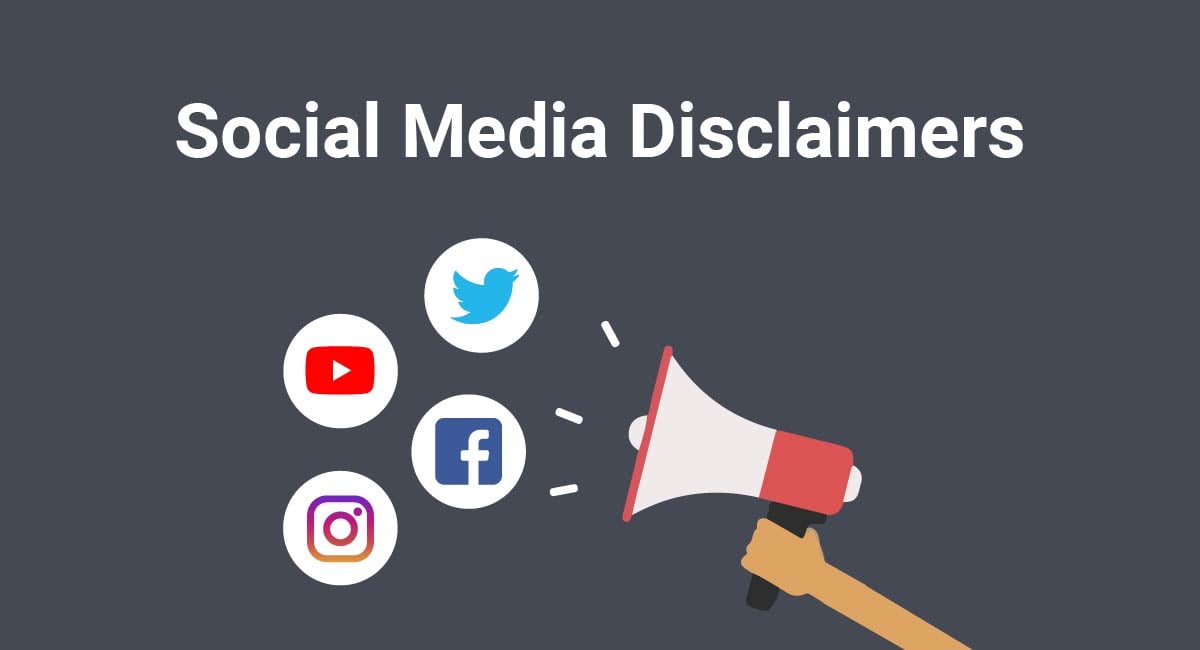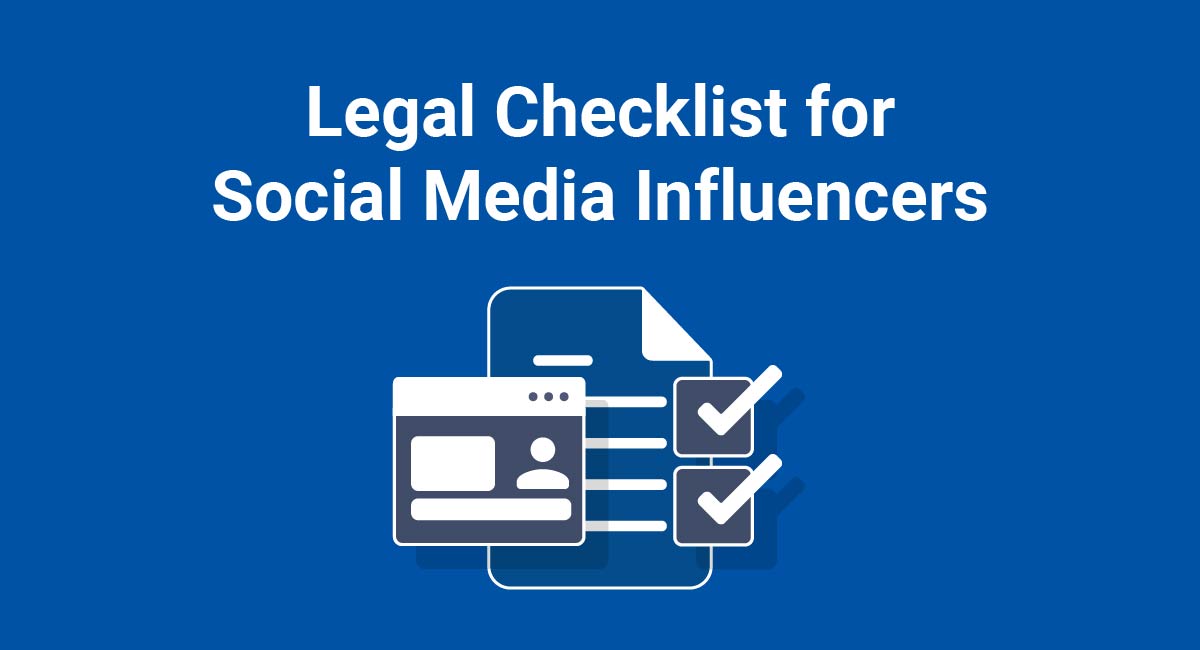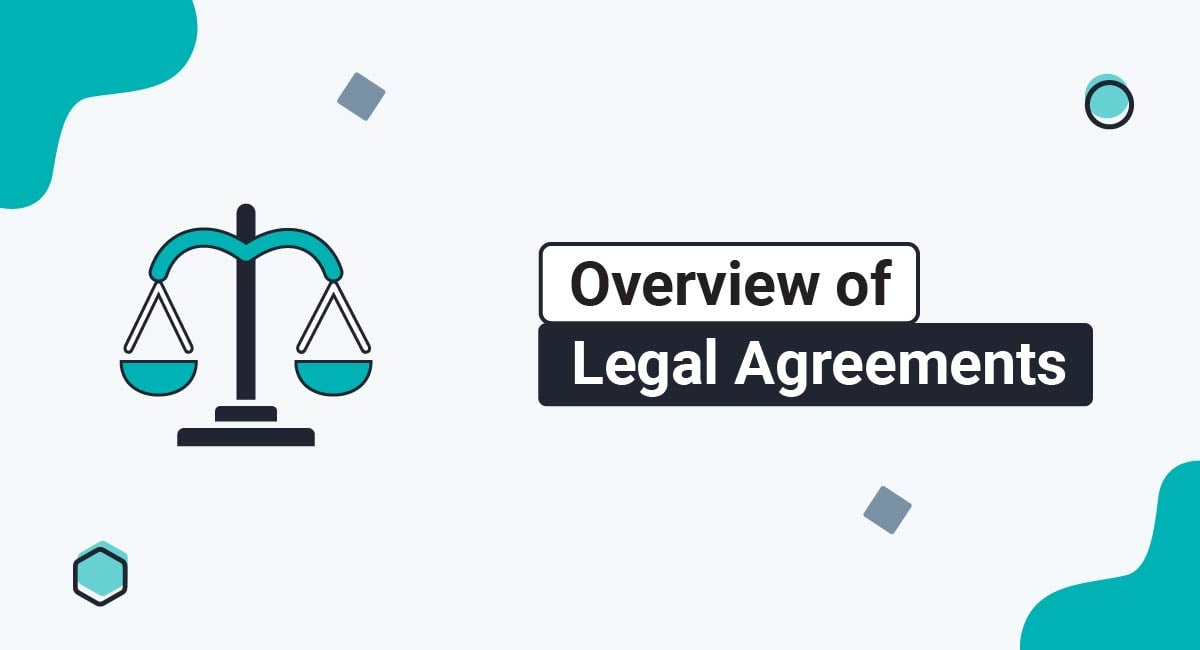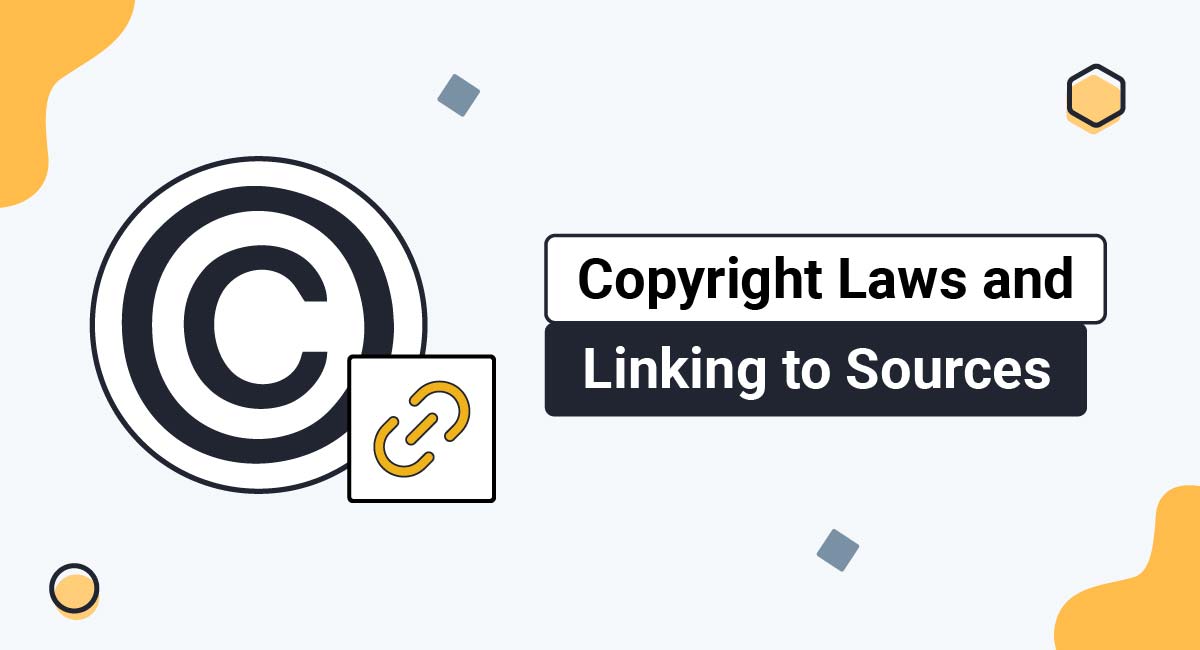Having a social media presence for your business is important for branding and marketing, as well as connecting with potential and existing customers or clients.
Maintaining business social media accounts comes with a lot of perks, but it can also come with some risks. Users may post defamatory comments or dangerous links on your page. Other risks include your social media posts being confused for professional advice, or users holding you responsible for a third party's privacy violations.
An easy way to get the benefits of a social media presence while mitigating some of the risks is by including a Social Media Disclaimer on your business social media sites.
Our Disclaimer Generator can generate a legal disclaimer for your business, website or mobile app. Just follow these steps:
-
At Step 1, select where your Disclaimer will be used.
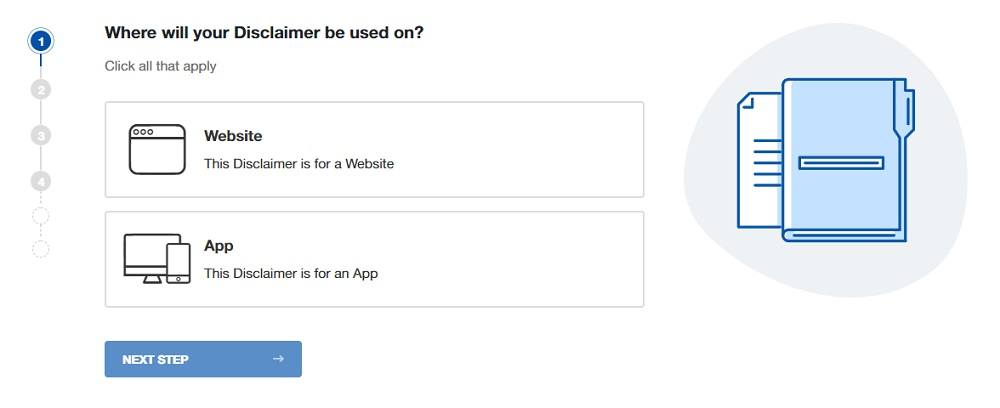
-
At Step 2, add in information about your website/app and business.
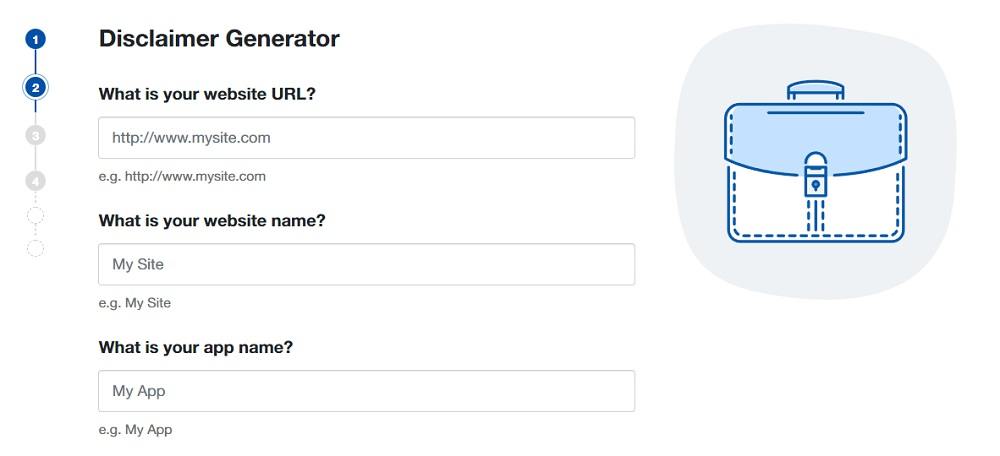
-
Answer some questions about your business practices.
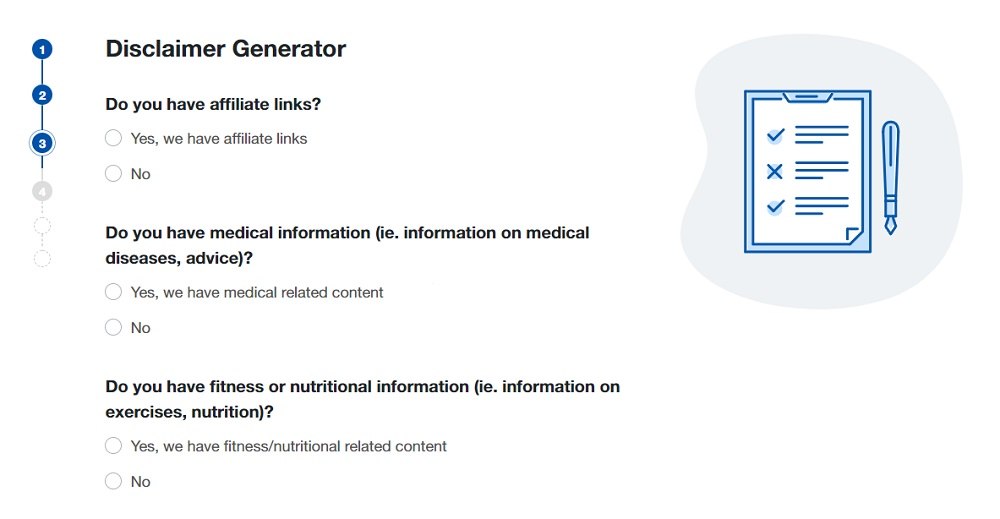
-
Enter an email address where you'd like to receive your Disclaimer and click "Generate."
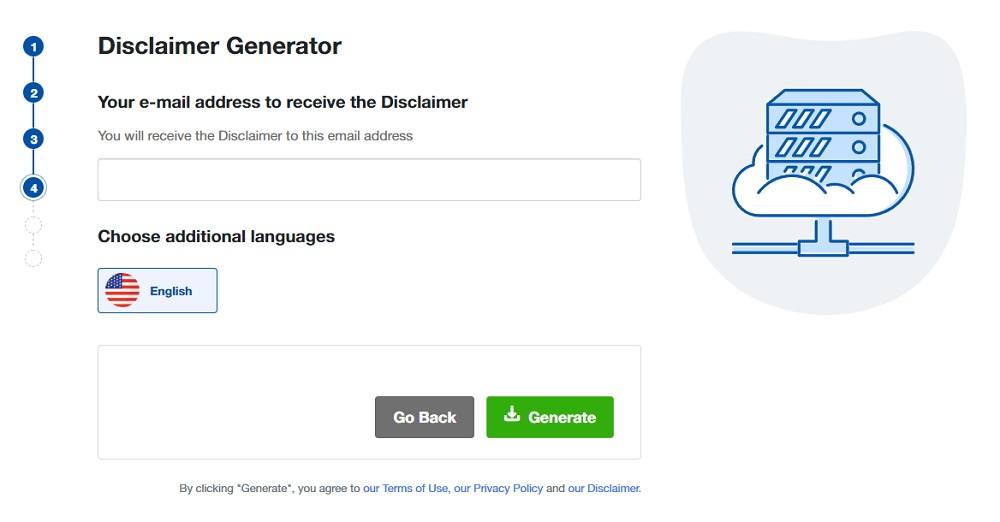
Done! You'll be able to instantly access and download your new Disclaimer.
What is a Social Media Disclaimer?
While not required by law, a Social Media Disclaimer will make social media management much easier for your business.
Social Media Disclaimers, like other disclaimers, work to do things like waive your liability, set limits for users, and warn of possible risks. This places users on notice that certain behaviors will not be tolerated and that they are responsible for the risks they take.
For businesses and organizations with social media accounts, Social Media Disclaimers work similarly to a Terms & Conditions (T&C) for users who use or post on a company's social media account.
Like a T&C, Social Media Disclaimers can list rules of conduct and spell out prohibited content and actions as well as waivers of liability. They can include notices that your social media posts do not constitute legal advice, and that any information shared by you or anyone else on your social media outlet is not an endorsement or recommendation of the post's content.
Do You Need a Social Media Disclaimer?

You aren't legally required to have a Social Media Disclaimer. However, if you want to keep control over posts on your business' social media page and want to waive liability that could arise from employee or general public posts, then including a Social Media Disclaimer is a good idea.
It places users on notice that you watch the accounts and act on prohibited conduct. If users want to interact with you and other customers on your account, they must follow your requirements.
Since employees represent the companies they work for and may damage a company's reputation if they make offensive posts or engage in frowned upon social media activity, many companies enact social media policies for employees to follow.
The Foundation for Orthopaedic Research and Education (FORE) includes Social Computing Guidelines for its employees within its Social Media Disclaimer.
One point in the Guidelines reminds representatives that they are personally responsible for their online publications, including social media comments:
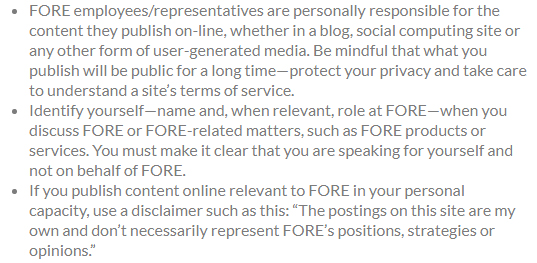
The disclaimer requests that employees and representatives identify themselves and make it clear they're speaking for themselves whenever anything they post is related to the company.
The Guidelines end with a reminder that the "private, personal, and professional are blurred" when dealing with online social networks.
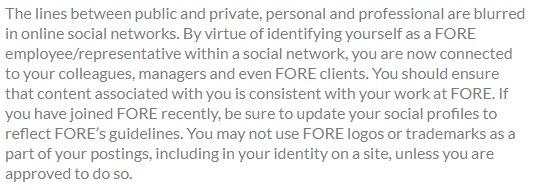
Ask yourself if you think you need to maintain more control over your social media page and disclaim potential liabilities. If you think you do, then you would benefit from a Social Media Disclaimer.
How to Write a Social Media Disclaimer

Social Media Disclaimers often resemble a T&C, but with unique provisions as well.
Most Social Media Disclaimers will contain the following points:
- Introduction
- Rules of conduct/Prohibited content
- Right to remove content
- Liability/warranty disclaimers
- Content ownership
Let's take a look at examples of each of these points to see why they're so important and what they accomplish.
Introduction
Start your Social Media Disclaimer with a description of your social media presence. You can list the specific platform you're on such as Facebook, Instagram and LinkedIn.
Since new services arise daily, you may wish to include an "included but not limited to" statement just in case you start using a new or different platform and don't want to regularly update your disclaimer.
FORE mentions several of its specific platforms by name and also takes the "including, but not limited to" approach. It lets users know that they're encouraged to get involved and create open discussions, share experiences and stories, and comment.

The introduction section is where you can include a statement that by posting on your social media outlet, the poster is agreeing to your terms.
Here's how the Association for Library and Information Science Education (ALISE) does this in the first part of its disclaimer:
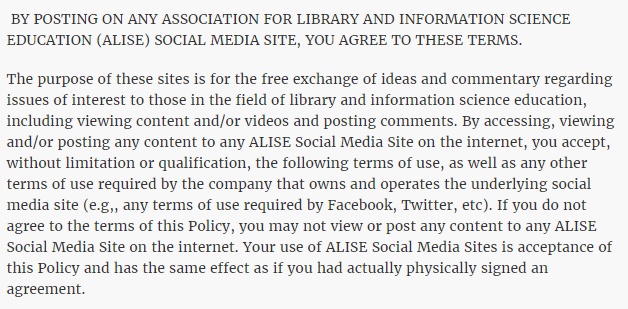
Rules of conduct/Prohibited content
Just as with a T&C, your Social Media Disclaimer should also include rules of conduct. These rules should be limited in scope to social media use and not general website or app use, which may still require a separate T&C.
Security Benefit calls its social media rules its "guidelines" and has them in an easy-to-read bulleted list. Not only does it cover illegal or dangerous behavior, but also content control to prevent repetition:
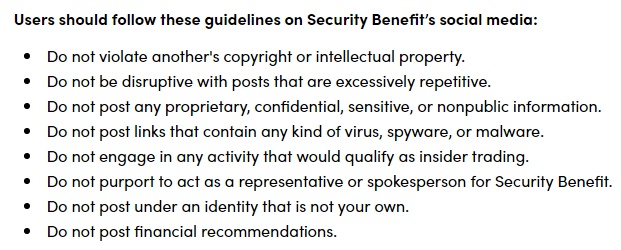
Cincinnati Children's Hospital Medical Center puts all of its rules into one paragraph instead of a list.

However, a bulleted list is easier for users to comprehend, so that may be your best approach.
If posts may be covered by any specific laws or regulations due to your business' industry, address this here.
For example, because Cincinnati Children's Hospital Medical Center is a healthcare provider, it addresses posts that may violate the medical privacy provisions in the Health Insurance Portability and Accountability Act (HIPPA):

Right to remove content
After you tell users what content is prohibited, reserve your right to moderate content by removing any posts that violate your rules. That way users have no recourse if you remove their comments or block them.
Here's how Security Benefit lets users know that it has reserved the right to moderate all content, remove information or language and block users who violate the guidelines. It includes a list of what types of posts it may remove, "at its discretion":

Here's how Boston Children's Hospital announces that reserves "the sole right to review, edit and/or delete any comments it deems are inappropriate" and has a list of what type of comments may be inappropriate:
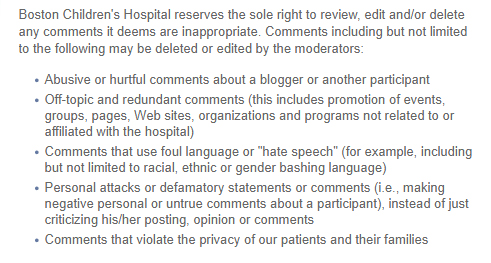
The "included but not limited to" statement is a good idea to add since it gives you a more broad discretion and open-ended control.
Liability/warranty disclaimers
If your business and social media outlet provides professional advice such as legal or medical information, this is an important section of your disclaimer.
It's very easy for users to confuse posts or shared links with advice and you do not want to face liability because of this.
Security Benefit manages retirement accounts so it emphasizes these disclaimers. Its section on liability addresses endorsements, advertisements, professional advice, and the behavior of other websites.
In this section it makes it clear that links, videos, and other content are shared for information and discussion only. It also does not assume responsibility for the privacy practices or accuracy of content from third parties:

ALISE generally states that users are responsible for the effects of engaging with online content. This includes any privacy violations, security, and even warranties:

Content ownership
Comments and posts on social media are user-generated content (UGC). Unlike other platforms, if a user posts on another entity's social media account, that comment does not belong to the user.
This can be misunderstood by your users, so you should make it clear in your Social Media Disclaimer that you own the content on your social media - including user posts - and that you may use it as you wish.

There are many reasons why you will want to maintain this right. You may want to use comments or discussions for blog post material, or if there are positive reviews you will likely want to post those on your website.
While it is unlikely that a user will make a copyright claim against you when you do that, adding this language to a Social Media Disclaimer puts users on notice that you can and may use their content.
Having a Social Media Disclaimer can help you prohibit undesired user posts, limit your liability and retain ownership rights. Just remember - a disclaimer on your business' social media account will not save you or your company from public backlash over a poorly worded message or post. But it definitely can help.

Comprehensive compliance starts with a Privacy Policy.
Comply with the law with our agreements, policies, and consent banners. Everything is included.
